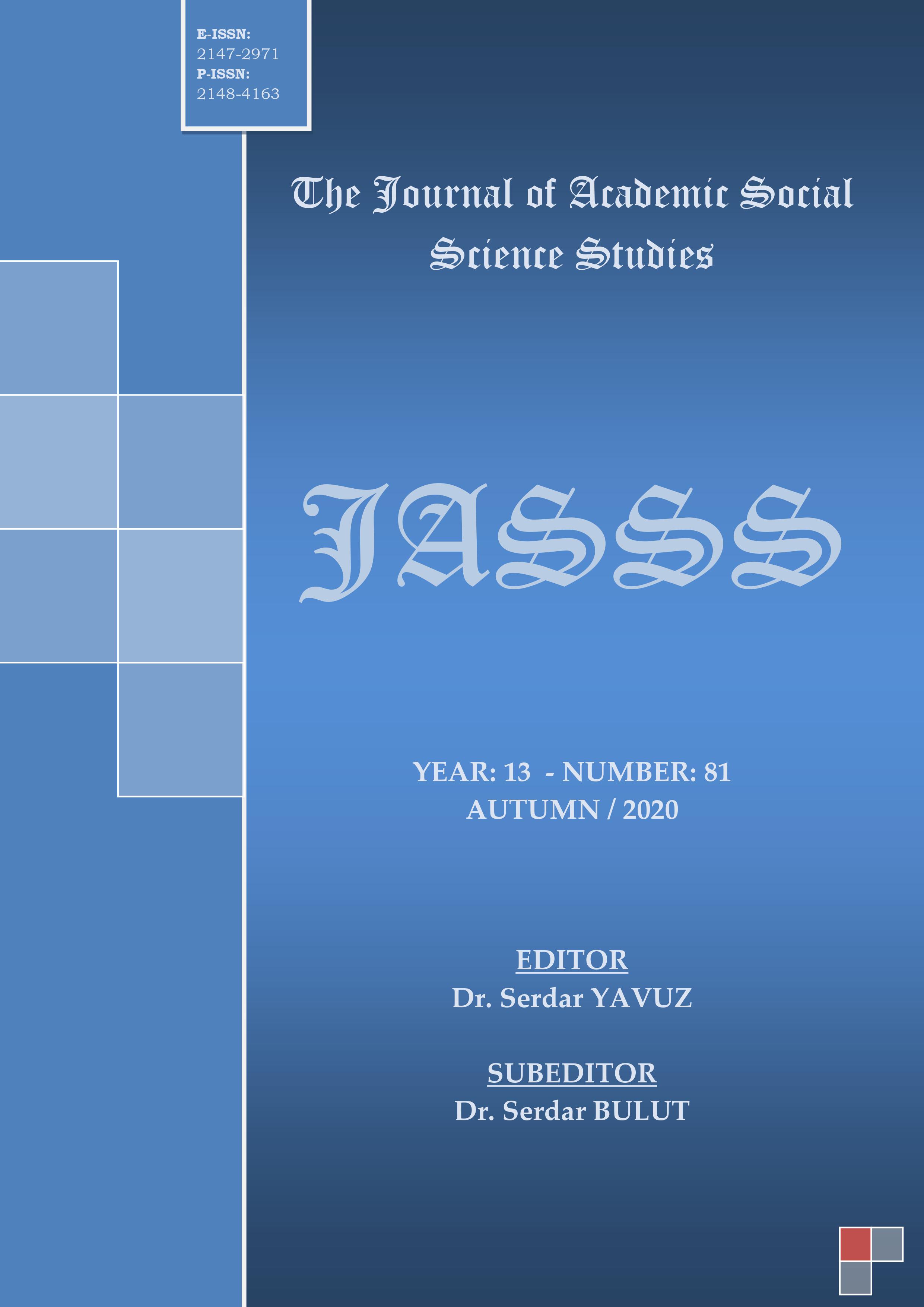Author :
Abstract
Basının kamuoyu üzerinde bir ideoloji yaratma konusundaki gücü herkes tarafından bilinen bir gerçek. Basının bu gücünü fark eden sermaye sahibi insanlar internetin de yaygınlaşması ile basın sektörüne daha çok girmeye başladılar. Sermaye sahibi patronların gazete, dergi, radyo, televizyon ve hatta dağıtım kanalı gibi işletmeleri satın almaları, basında tekelleşme kavramını ortaya çıkarmış ve bu durumu alışılagelmiş bir hale getirmiştir. Enerji, maden, petrol, otomotiv, finans ve turizm gibi farklı iş alanlarında faaliyet gösteren iş adamları, kendilerinin ve şirketlerinin reklamlarını yapmak ve basını siyasi ilişkilerde kullanmak isterlerken, aynı zamanda kamuoyu üzerinde bir söz sahibi olmak maksadıyla da basın kuruluşlarını satın alırlar. Holding sahibi patronlar devletten bazı çıkarlar elde etmek adına pek çok ödün vermekte ve bu da basın sektöründe çalışan kişiler üzerinde yoğun bir baskı oluşturmaktadır. Türkiye’de medyanın durumu, yıllarca bu sektör içerisinde uğraş gösterip tutunmaya çalışan kişilerin yerlerini, büyük sermaye sahibi patronlara bırakmasıyla günden güne kötüleşen bir hal almaktadır. Sektördeki holdingleşmeler temel basın ilkelerini hiçe sayarak pek çok etik sorunu da beraberinde getirmektedir. Çalışmanın amacı, tekelleşmeden kaynaklanan, etiksel çerçeveye aykırı olan bir durumun eleştirel yönlerini sunmak ve tartışma formları hazırlamaktır. Aynı zamanda bu çalışma, Uşak Üniversitesi Sosyal Bilimler Enstitüsü İletişim Bilimleri Anabilim Dalı’na bağlı yüksek lisans tezinde daha detaylı bir biçimde incelenmektedir.
Keywords
Abstract
It is well-known that media has the power to create an ideology over public opinion. People with capital who realized the power of the media started to enter into the media sector more than ever with the spread of the internet. The acquisition of businesses such as newspapers, magazines, radio, television and even distribution channels by the owners of capital created the concept of monopolization in the media and made this situation customary. While businessmen operating in different business areas such as energy, mining, oil, automotive, finance and tourism want to promote themselves and their companies and use the press in political relations, they also buy the media organizations to have a voice in public opinion. Holding owners make many compromises in order to gain some interests from the state, which puts intense pressure on those working in the media sector. The situation of the media in Turkey is deteriorating day by day as people who have worked and tried to hold on within this sector for years leave their places to the owners who have a large capital. Conglomerations in the sector cause many ethical problems by ignoring basic media principles. This study aims to present the critical aspects of a situation arising from monopolization that is contrary to the ethical framework and to prepare discussion forms. On the other hand, this study is examined in more detail in the master's thesis of the Department of Communication Sciences at the Institute of Social Sciences of Uşak University.
Keywords
- Avşar, Z. (2002). Medyada Klasik Etik Kodlar Bir İllüzyon Mu?, Selçuk Üniversitesi İletişim Fakültesi Dergisi Cilt 2, Sayı 3.
- Belsey, A. ve Chadwick, R. (2011). Medya ve Gazetecilikte Etik Sorunlar, Çev: Nurçay Türkoğlu. İstanbul: Ayrıntı Yayınları 2.Baskı.
- Bulunmaz, B. (2011). Holdingleşme Ekseninde Türk Medyasında Tekelleşme Sorunu, Maltepe Üniversitesi İletişim Fakültesi Gazetecilik Bölümü Cilt 9, Sayı 36.
- Binatlı, C. (2002). Türkiye'de Gazete ve Dergilerin Dağıtım Yapısındaki Gelişmeler. İstanbul Ticaret Üniversitesi Dergisi, İstanbul.
- Chomsky, N. (2002). Medya Gerçeği, Çev: Abdullah Yılmaz-Osman Akınhay, İstanbul: Everest Yayınları 3.Basım.
- Çacuş, S. (2010). Yerel Medya ve Etik, Selçuk Üniversitesi Sosyal Bilimler Enstitüsü Gazetecilik Anabilim dalı Yüksek Lisans Tezi, Konya.
- Demir, V. (1998). Türkiye’de Medya ve Özdenetimi. İstanbul: İletişim Yayınları.
- Erdoğan, İ. (2002). “Tekelleşme, Medya ve Medya Pratikleri”, Toplum ve Hekim Kasım-Aralık Cilt:17 Sayı:6.
- Erdoğan, İ. ve Alemdar, K. (2010). Öteki Kuram, Yenilenmiş 3.Baskı.
- Eroğlu, H. A. (2005). Endüstriyel İşletmelerde Dağıtım Kanalları Seçimi ve Dizaynı. Ankara: Asil Yayın Dağıtım.
- Genç, A. (1998). Türk Televizyon Haberciliğinde Etik Sorunlar, İstanbul Üniversitesi İletişim Fakültesi Dergisi, sayı 7.
- Kıvrak, S. (2014). “Gıda Sektöründe Dağıtım Kanalı Modelleri Ve Seçim Yaklaşımları”, Maltepe Üniversitesi Sosyal Bilimler Enstitüsü Uluslararası Ticaret Ve Lojistik Yönetimi Anabilim Dalı Yüksek Lisans Tezi, İstanbul.
- M.E.B. (Milli Eğitim Bakanlığı), (2013), Gazetecilik Yayın Dağıtım, Ankara, MEB Yayınları.
- Odabaşı, Y. ve Oyman, M. (2002). Pazarlama İletişimi Yönetimi, Eskişehir, Mediacat Yayınları.
- Özsever, A. (2004). Tekelci Medyada Örgütsüz Gazeteci, Ankara, İmge Kitapevi Yayınları 1.Baskı.
- Öztermiyeci, M. (2016). Basın İşletmelerinde Dağıtım Fonksiyonu AB-Türkiye Karşılaştırması ve Türkiye’deki Abonelik Sistemi Üzerine Bir Araştırma, Marmara Üniversitesi Sosyal Bilimler Enstitüsü Gazetecilik Anabilim Dalı Ekonomisi ve İşletmeciliği Bilim Dalı Doktora Tezi, İstanbul.
- Radyo Televizyon Üst Kurulu (1994). Yayıncılık Etik İlkeleri, https://www.rtuk.gov.tr/yayinci- duzenlemeleri/3746/3908/yayincilik-etik-ilkeleri.html (erişim tarihi: 26.05.2020).
- Sayılgan, E. (2010). Medya İşletmelerinde Pazarlama Yönetimi, İstanbul, Beta Basım.
- Sayılgan, E. (2009). Medya Sektöründe Rekabet Olgusu ve Medyaya Giriş Engelleri, Marmara Üniversitesi İletişim Fakültesi Dergisi, Sayı 15.
- Tokgöz, O. (2013). Temel Gazetecilik, İmge Kitapevi Yayınları 10.Baskı Ankara Kasım 2013.
- Turkuvaz Dağıtım Pazarlama, http://www.tdp.com.tr/hakkimizda/sirket-profili (erişim tarihi: 15.05.2020).
- Türkiye İstatistik Kurumu, (2018). Yazılı Medya İstatistikleri.
- Türkoğlu, N. Editör (2006). Medya Okuryazarlığı, Marmara Üniversitesi İletişim Fakültesi Yayını 1.Baskı, İstanbul.
- Uluç, G. (2001). Basın ve Etik, İstanbul Üniversitesi İletişim Fakültesi Dergisi, sayı: 11.
- Uzun, R. (2007). İletişim Etiği Sorunlar ve Sorumluluklar, Gazi Üniversitesi İletişim Fakültesi Basımevi Birinci Baskı.
- Yılmaz, R. (2011). Türk Basınında Abone Sisteminin Gazete Satışına Etkisi ve Zaman Gazetesi Örneği. Selçuk Üniversitesi Sosyal Bilimler Enstitüsü Gazetecilik Anabilim Dalı Gazetecilik Bilim Dalı Yüksek Lisans Tezi, Konya.





